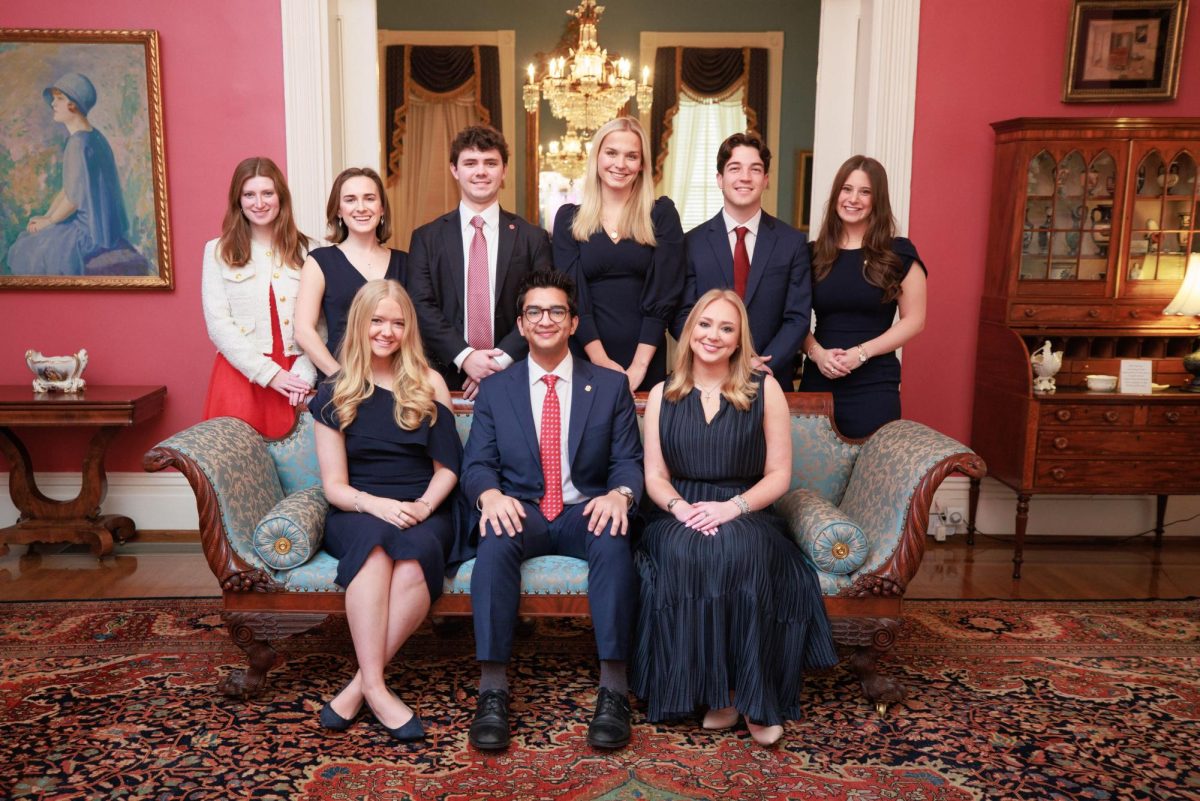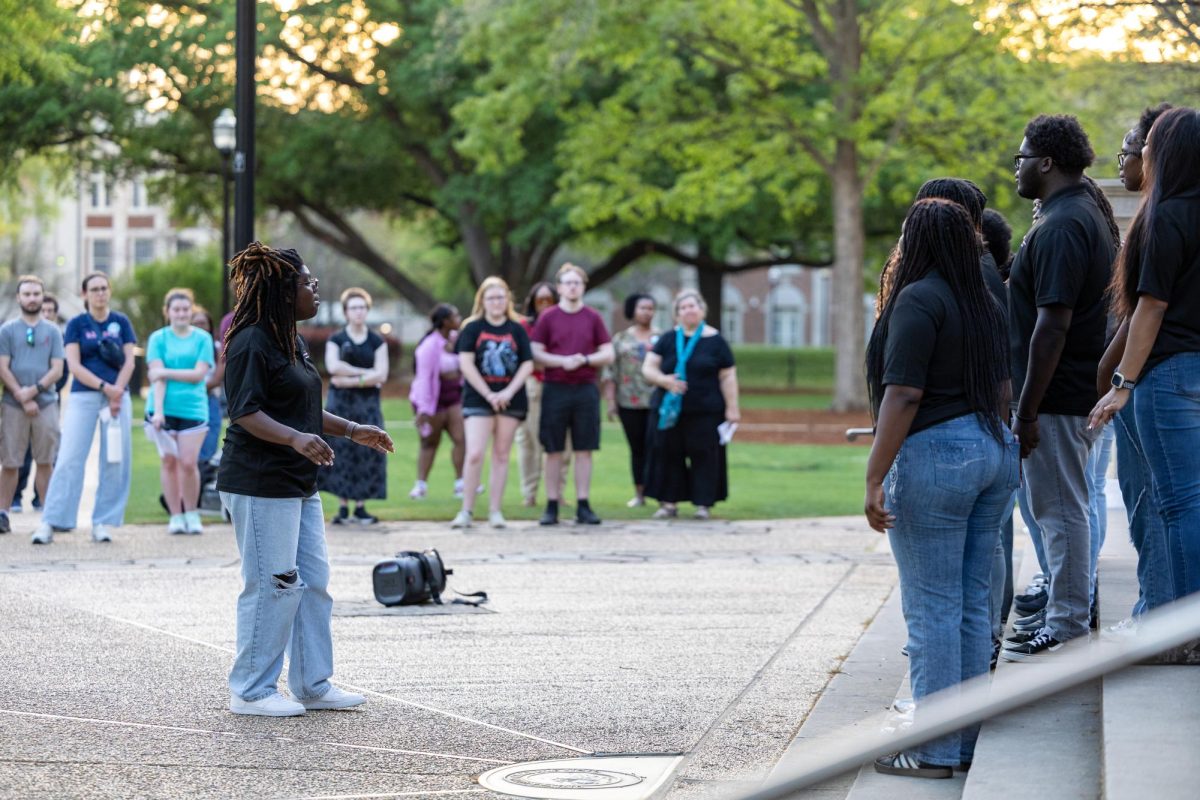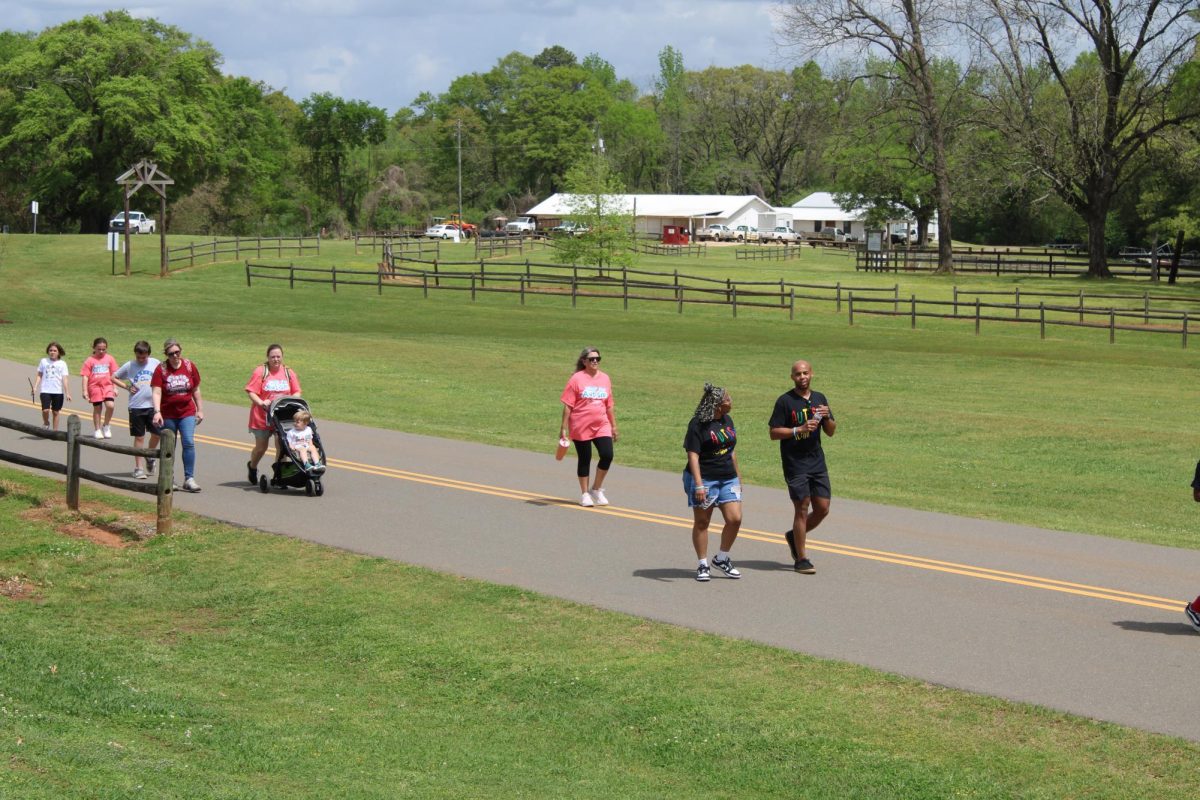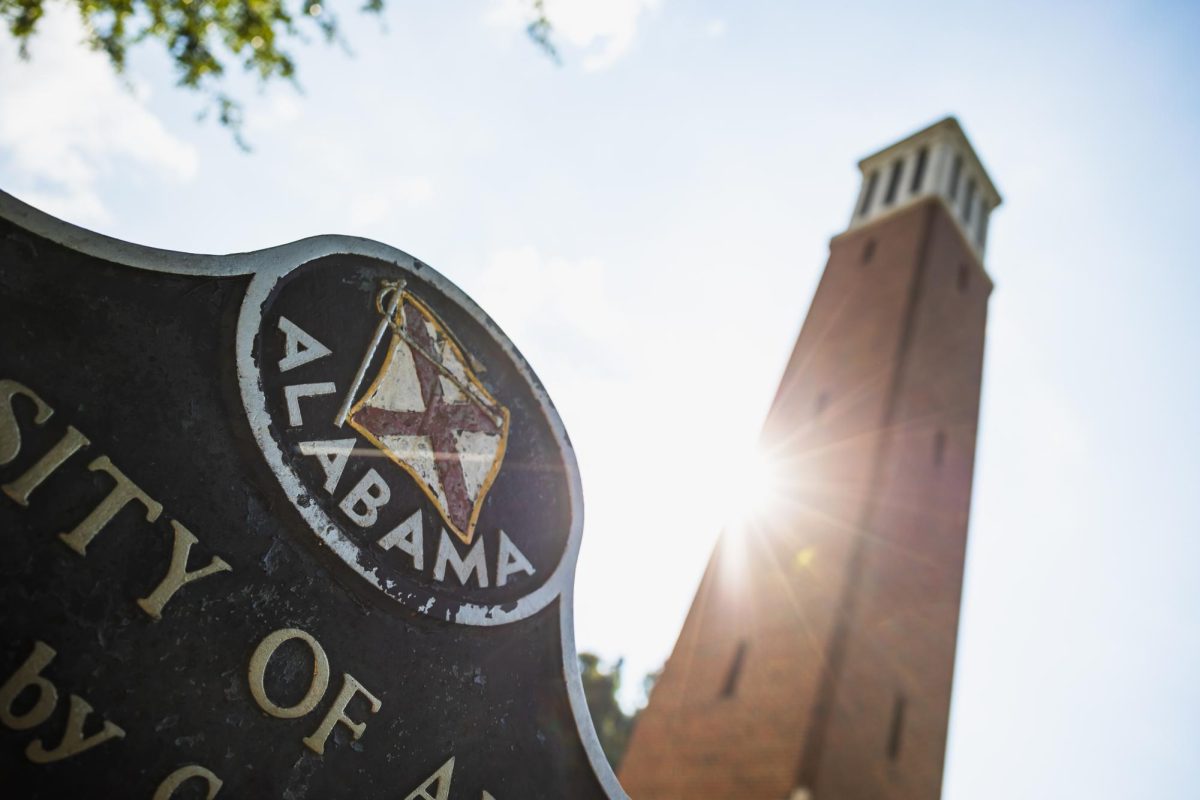The 113th SGA administration came into the fall semester with a solid agenda, based on the campaign platform of president Samad Gillani, and faced a torrent of change, due in part to the passage of SB129 effectively eliminating the entire Diversity Equity and Inclusion branch of the program. The executive council spent the fall semester working towards its goals, and spent time in the spring semester reflecting on its accomplishments.
Samad Gillani, president
At the executive level, SGA President Samad Gillani was proud of the many achievements of his administration, including a Capital Campaign designed to fund the SGA’s future endeavors. He also got SGA representatives to interact with various committees at the University, where they helped decide on key programs, like the new “Built by Bama” core curriculum.
“SGA ensures that students have a seat at decision-making tables on our campus,” he said.
Samad said he took a central role in several important changes around campus, including his role in the Presidential Search Committee looking for President Stuart Bell’s successor. His administration was also responsible for the “Look Up Legends” and Legends Live initiatives.
“Our team has exceeded the call of students serving students,” Gillani said. “It has been the honor of a lifetime to represent the student body, and to guide and support the 113th Administration. I look forward to finishing out my term strong and am grateful to my peers for the opportunity to serve.”
Aubrei Grisaffe, vice president for belonging and wellness
Grisaffe is currently the vice president for belonging and wellness in the SGA Executive Council, a position she was not initially elected to. After running as the vice president for diversity, equity and inclusion, her position changed over the summer after the passage of Senate Bill 129, a new Alabama law that forced shutdowns of DEI departments in public education institutions.
“My proudest accomplishment has been working and collaborating with University administrators, other student leaders and internal SGA leaders to make sure that we were in compliance with that bill,” Grisaffe said.
Grisaffe and her staff introduced a new program during the spring semester — the Capstone Wellness Explorer, which replaced the DEI Passport. By assigning point values to different wellness events, participating organizations could encourage their members to attend for a better chance at block seating.
Walker Parsons, vice president for external affairs
Parsons had a similarly eventful semester. His department was primarily focused on increasing the University’s voter turnout through the SGA Lobby Board.
The Lobby Board hosted a town hall series and invited speakers from local government to campus. It also celebrated National Voter Registration Day by tabling in partnership with student organizations and local groups including the League of Women Voters and Vote Everywhere UA.
While tabling, the SGA also encouraged students to use the service TurboVote, a website that gives students resources on how to vote absentee while in college. Parsons said that over 700 students used the service after the day’s tabling.
The University challenged the University of South Carolina to a competition to see who could get the most TurboVote sign-ups.
“We demolished them,” Parsons said.
Jensyn Seay, executive secretary
Seay said she has been focused on facilitating effective communication between all aspects of the SGA. Last semester, her department touted new initiatives to reach students and alumni, including SGA-specific newsletters and an SGA Parent’s Weekend.
Seay said one of her biggest personal ambitions was a partnership with student organizations to fundraise for the Salvation Army’s Angel Tree, a program that gives gifts to children in need over the holiday season.
“With the support of over 30 groups on campus, we were able to sponsor 45 children and raise over $11,000,” she said.
Seay also made changes to the SGA website last semester, updating certain sections and publicly posting office hours for the executive council to make the SGA more accessible for students.
The executive secretary position was dissolved by the senate and will be replaced with the position of vice president of communications.
Lucy Bonhaus, vice president for student affairs
Bonhaus said her proudest accomplishment was hosting the University’s “It’s On Us Week,” a national campaign dedicated to raising awareness about sexual assault and educating students on the resources the University has available. SGA also raised over $30,000 in funds for the Tuscaloosa SAFE Center during the week, with collaboration from local businesses.
Bonhaus said she didn’t initially have “It’s On Us Week” in mind when entering office this semester, but saw the overwhelming need for it and put it into action.
Cassidy Matwiyoff, vice president for academic affairs
Matwiyoff ran on a platform of clarity, engagement and advocacy. She said she enacted these initiatives her first semester by revamping the Access Granted video tutorials, which explain how to use the University’s online textbook program, as well as adding college-specific information to the University website, such as individual college tutors and resources.
Matwiyoff also ran on the “Legends Live” initiative, where University “legends” come back to give speeches and impart wisdom to students. She said that she is currently working on the initiative and that it’s her No. 1 priority for this semester.
She said she plans to host the first Legends Live on March 19 at 6:30 p.m. in the Randall Welcome Center. Speakers will include Mary Margaret Carroll, a former SGA president and current lobbyist for Fine Geddie & Associates; Gina Rigby-House, the second vice president at Aflac; Gina Maiola, communications director for Gov. Kay Ivey; and Liz Huntley, founder of The Hope Institute.
Lucas Welson, vice president for financial affairs
Weldon oversaw the Financial Affairs Committee program, which faced new challenges after the passing of SB129, which also banned the teachings of “divisive concepts” in public schools.
Weldon said he dealt with this by revamping the FAC process, allowing for a rolling application style where members of the committee meet with those wanting funding either “every week or every other week,” as opposed to the previous three to four times a semester.
“We’re able to have student organizations apply more often for funding, as well as apply closer to the deadlines when they need the funding,” he said. “We’re seeing that we’re able to deploy capital quicker to these organizations.”
Olivia Frazier, executive vice president
Frazier is a non-voting member and overseer of the Senate and the First Year Council.
“In addition, I assist all the other vice presidents in their endeavors,” Frazier said.
Regarding the FYC, Frazier said she was especially proud of her role in amending it this semester to mirror the SGA Senate. She said that, previously, the committees between the two bodies didn’t have direct overlap, causing confusion when FYC members would join the Senate.









